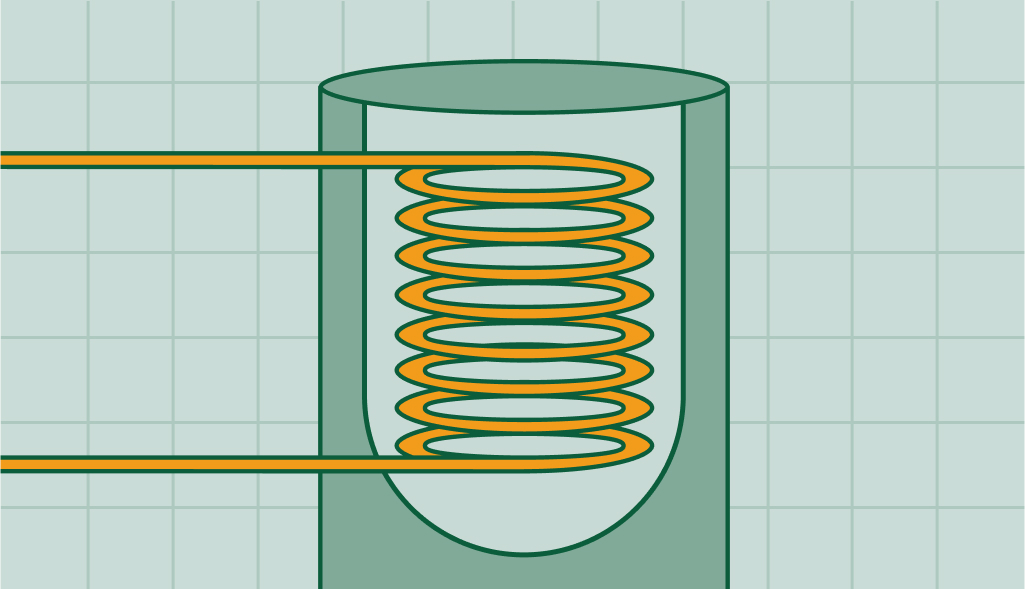Understanding Indirect Water Heaters to the fullest

Efficient Hot Water Supply with Indirect Heating
Indirect water heaters are a popular choice for providing ample hot water supply in residential and commercial settings. These innovative systems offer energy-efficient solutions by utilizing an indirect heating method. In this article, we will tap into:
- what an indirect water heater is,
- how it works,
- the advantages it offers for a reliable and cost-effective hot water supply.
What is an Indirect Water Heater?
An indirect water heater is a type of water heating system that utilizes an external heat source to heat the water. Unlike conventional water heaters, indirect water heaters rely on an external heat source:
- such as a boiler
- a solar thermal system to heat the water indirectly.
How Does an Indirect Water Heater Work?
The operation involves three main components: the water storage tank, the heat exchanger, and the primary heating source. Here’s a step-by-step breakdown of how the unit works:
- Water Storage Tank: The water storage tank serves as a reservoir for storing and supplying hot water. It is typically well-insulated to minimize heat loss.
- Heat Exchanger: The heat exchanger is a crucial component of an indirect water heater. It transfers heat from the primary heating source to the water in the storage tank. The heat exchanger consists of a coil or a series of tubes that allow the transfer of thermal energy.
- Primary Heating Source: The primary source (a boiler or a solar thermal system) generates the heat to warm the water. The heat energy is transferred to the heat exchanger, indirectly heating the water stored in the tank.
- Cold Water Supply: The cold water supply enters the heat exchanger and circulates around the heat exchanger’s coil or tubes. As it goes through, the heat exchanger transfers the energy from the primary source to the cold water, rapidly heating it.
- Hot Water Distribution: Once heated to the desired temperature, it is ready to be distributed through the plumbing system.
Advantages of Indirect Water Heaters
- Energy Efficiency: Indirect water heaters are highly energy-efficient due to their reliance on external heat sources. Using a separate heating system (a high-efficiency boiler), the unit can profit from the efficiency of the primary source. It will result in energy savings.
- Abundant Hot Water Supply: Indirect water heaters provide a continuous and abundant supply of hot water. The large storage tank allows for greater capacity, ensuring ample hot water availability even during periods of high demand.
- Extended Lifespan: The indirect heating method used in these reduces the wear and tear on the internal components. Indirect water heaters tend to have longer lifespans compared to traditional water heaters.
- Flexibility: Indirect water heaters are compatible with various primary heating sources: boilers fueled by gas, oil, electricity and solar thermal systems.
- Minimal Maintenance: The maintenance is minimal as the primary heating source takes care of the heating. Routine checks and basic maintenance of the storage tank and heat exchanger are usually sufficient to keep the system operating efficiently.
Exploring Indirect Water Heater Heat Sources
A key to understanding indirect water heaters is to delve into the specifics of the external heat sources used and how they contribute to the system’s efficiency. Let’s dissect the two primary heat sources used in indirect water heaters – boilers and solar thermal systems.
Boilers as a Heat Source
Boilers are a common source of heat in indirect water heating systems. The heat produced by the boiler is transferred to the water through the heat exchanger. This can be a gas, oil, or electricity-powered boiler. When the boiler fires up to heat the building, it also heats up the water in the indirect water heater’s tank.
Solar Thermal Systems as a Heat Source
Solar thermal systems are an environmentally friendly and renewable source of heat for an indirect water heater. These systems consist of solar collectors, usually mounted on the roof, which absorb heat from the sun and transfer it to a heat transfer fluid. This heated fluid is then circulated to a heat exchanger in the storage tank of the indirect water heater, heating the water.
Final words
Indirect water heaters offer a reliable and energy-efficient solution for providing hot water in residential and commercial settings. By using an external heat source and an indirect heating method, these heaters will last longer and offer you confort.
Blog
Water Heater Recirculating Pump : Why And How Does It Work?
What is a Hot Water Recirculating Pump and How Does It Benefit Your Home? Every homeowner knows the inconvenience of waiting for hot water to […]
Troubleshooting: Why Your Hot Water Heater Is Not Working
When you want a warm bath or shower but only get cold water, it can be really annoying. If your hot water heater isn’t working, […]

